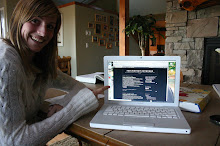Harry Truman: president at the end of WWI, launched atomic bomb, endorsed "containment" policy after the war
"Fair Deal:" Truman's continuation of Roosevelt's New Deal policies, but they were focused on help of specific groups
"revisionists:" historians that argue that the Soviet's obsession with securing its borders was an appropriate reaction to German aggression.
Henry Wallace: Truman's most visible Democratic critic, chided Truman for exaggerating the Soviet threat.
Containment: the principle of not letting communism spread any farther than it already had. Linked to economic policies by Marshall plan.
Truman Doctrine: believed in the policy of containment, began with effort to combat insurgency in Greece, tied US security to fate of "free peoples" everywhere, congress approved $400 million in assistance to Greece and Turkey, mostly military.
Executive Order 9835: brought containment of communism to home front, instituted system of loyalty boards to investigate backgrounds and activities of federal employees, looked for "security risks" within government workforce, authorized attorney general's office to identify organizations considered subversive, stemmed from administration fear of Soviet espionage.
("loyalty boards")
George Kennan: the state department's leading expert on soviet affairs. Developed "containment," but upset with military implementation.
Marshall Plan: (1947) linked economic policies in Western Europe to containment, US funds used to help Western European governments with reconstruction, $13 billion, Soviets invited, but declined b/c didn't want to reveal economy to US, rebuilt Western europe, further isolated USSR.
National Security Act of 1947: created Defense Department, National Security Council, Air Force separate from Army and Navy, Central Intelligence Agency (CIA).
House Committee on Un-American Activities (HUAC): held hearings in 1947 to expose alleged communist infiltration in Hollywood. Sent to prison those industry workers who refused to answer questions.
Alger Hiss: affair, catapulted Richard Nixon into national prominence, involved low-level member of FDR's administration who was alleged to have communist connections, statue of limitations ran out on espionage charge, but convicted of perjury.
"Verona Files:" revealed depth of Soviet penetration, close ties between Moscow and Communist Party of the United States, Soviet informants in wartime governmental agencies, soviets began gathering atomic information in 1944.
"To Secure These Rights:" committee report that called for federal legislation against lynching, discrimination and segregation.
Kinsey Report: Dr. Aldred Dinsey's report that homosexuality was simply another form of sexuality and should be tolerated.
Strom Thurmond: 1948 States' Rights Party presidential candidate
Thomas Dewey:1948 Republican Party presidential candidate
Taft-Hartley Act: (1947) aka Labor-Managements Relations Act, limited unions' power to conduct boycotts, reduced use of "closed shop" as a way of influencing how workers were hired, prevented unions from calling strikes the president judged against national interest, increased union power to control members, required union leaders to swear against communist affiliations.
Federal Housing Authority (FHA): funded housing projects such as Levittown so as to addres the nation's housing crisis and rising demand.
Employment Act of 1946: adaption of Full Employment Bill, ensured maximum employment, created council of economic affairs.
GI Bill of Rights (Serviceman's Readjustment Act of 1944): comprehensive set of benefits for veterans of WWII. Included financial aid for college, preferential treatment for government jobs, med-core at veteran hospitals, extended to Korean War vets.
Jackie Robinson: first African american to play for a national league baseball team, endured racial abuse during rookie season.
Dr. Benjamin Spock: wrote Baby and Childcare in 1946. Sold millions of copies. Allocated all child-rearing responsibilities to women.
Levittown: Suburbia, 5-room bungalows sold to white, middle-class males, subsidies by government through Housing Acts.
Playboy: seen as a rejection of classical fatherly ideals, advocated as promiscuous lifestyle for men.
Rebel Without a Cause: 1955 movie about rebellious teen, sought to portray decay of youth, critique parenting and expose rift between generations.
North Atlantic Treaty Organization (NATO): military alliance between US, Canada, and other European nations. Attack on one member would be an attack on all. Cooperated on economic matters.
Berlin Blockade: soviets blockaded road and water traffic to west Berlin, ineffective because US flew in supplies.
Jiang Jieshi: capitalist leader of China that US supported government driven out to Taiwan by communist Mao Ze Dong.
Paul Nitze: reviewed US foreign policy, produced NSC-68.
NSC-68: developed US stance on communism as freedom US slavery and was used as basis of propaganda.
Mao Zedong: communist leader that took power in China and threw out Jiang Jieshi.
Syngman Rhee: headed unsteady, autocratic South Korean government. His protection of upper-class landowners angered some and prompted war.
Kim Il-Sung: communist leader of North Korea, moved troops into South Korea and provoked war with the US.
Julius and Ethel Rosenberg: convicted of providing Soviets with information about US nuclear weapons, controversial.
J. Edgar Hoover: head of the FBI, extremely powerful and racist, conducted illegal practices and held great influence.
Dwight D. Eisenhower: president after Truman, military hero, focused on foreign policy combatting communist expansion.
Communist Control Act of 1954: barred communist party from having candidates in elections in the United States.
Ebony: a publication that celebrated black mothers and mothers that combined success at work and at parenting.
Adlai Stevenson: democratic presidential candidate in 1952, strong anti-communist stance, got crushed by Eisenhower.
Baruch Plan: proposal by US to extend full disclosure between ll UN members of nuclear research and materials.
...Read more
Monday, April 13, 2009
Subscribe to:
Post Comments (Atom)

No comments:
Post a Comment